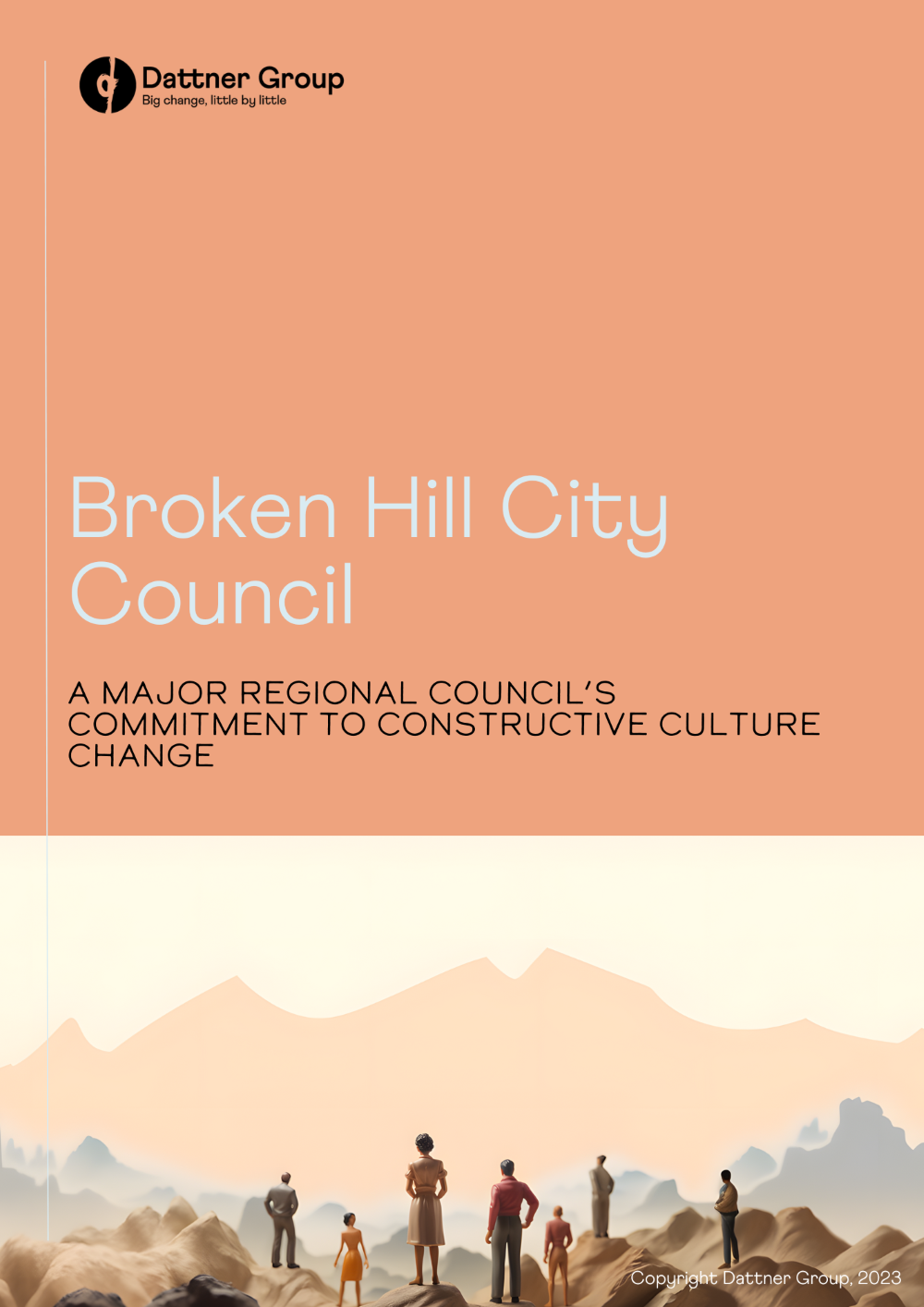Broken Hill City Council (BHCC) embarked on a transformative journey towards a constructive and empowered culture, facilitated by a long-term leadership and cultural development program initiated by the Dattner Group in 2018. This case study showcases a four-year collaboration between Dattner Group and BHCC, involving leaders at all levels and engaging everyone from Elected Councilors to frontline staff in designing and developing the desired culture.
Despite achieving financial stability through tough decisions and interventions, BHCC recognised a misalignment between their financial success and organisational culture, as highlighted by assessments using the Human Synergistics Organisational Culture Inventory (OCI) and Organisational Effectiveness Inventory (OEI). The existing culture was characterised as conventional, dependent, avoidant, oppositional, and perfectionistic, which hindered the organisation’s ability to achieve its aspirations and sustain financial viability.
The solution involved a comprehensive approach to culture transformation, with Dattner Group leading the development and delivery of interventions while BHCC leaders spearheaded the implementation. Key elements included fostering a culture focused on achieving outcomes, promoting personal learning and growth, enabling collaboration and empowerment, and fostering affiliation based on trust and respect.
The program aimed to galvanise Executive team support and engage all stakeholders in co-creating the desired culture. Through a combination of strategic interventions and committed leadership, BHCC embarked on a journey towards a culture aligned with its aspirations, driving positive change and empowering its workforce.
To find out exactly how they did it read the full case study.


